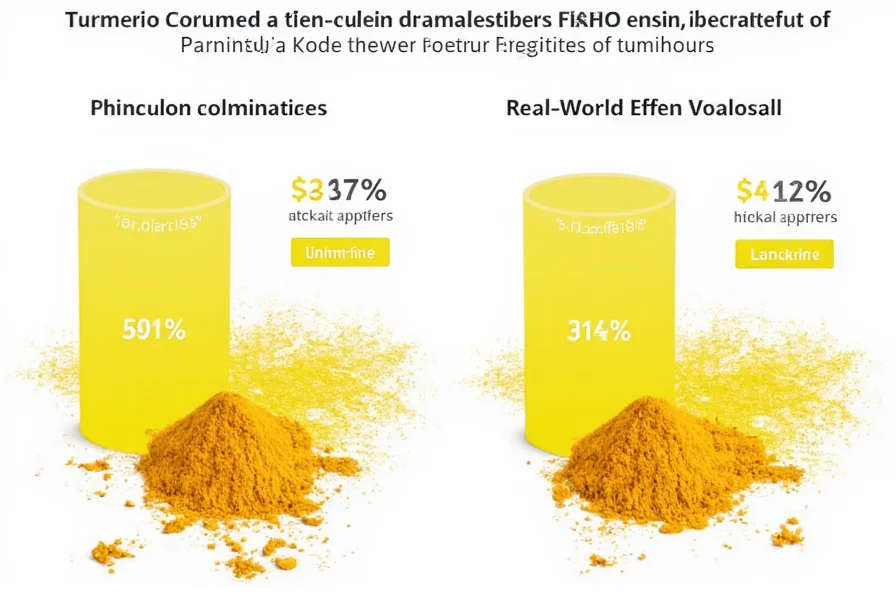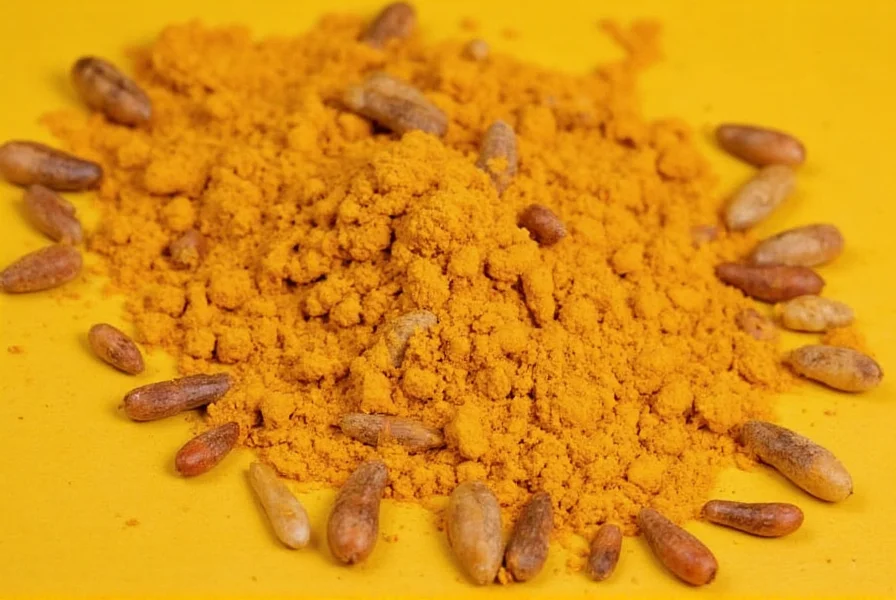When exploring natural approaches to parasite management, many people wonder does turmeric kill parasites effectively. This question deserves a careful, evidence-based examination as parasite infections require proper medical attention.
Understanding Turmeric's Active Components
Turmeric (Curcuma longa) contains several bioactive compounds, with curcumin being the most studied. Curcumin makes up about 2-8% of turmeric by weight and is responsible for many of its potential health properties. Research shows curcumin possesses anti-inflammatory, antioxidant, and antimicrobial properties that may contribute to its effects against certain parasites.
Scientific Evidence on Turmeric and Parasites
Multiple laboratory studies have investigated turmeric's effects on various parasites:
| Parasite Type | Study Findings | Research Context |
|---|---|---|
| Giardia lamblia | Curcumin inhibited growth by 50-70% in vitro | Test tube studies only |
| Plasmodium (malaria) | Reduced parasite load in animal models | Rodent studies, not human trials |
| Leishmania | Curcumin showed anti-parasitic activity | Preliminary laboratory research |
| Intestinal worms | Limited evidence of effectiveness | Mostly animal studies with mixed results |
How Turmeric Might Work Against Parasites
Researchers have identified several potential mechanisms through which turmeric may affect parasites:
- Oxidative stress induction - Curcumin may increase reactive oxygen species that damage parasite cells
- Membrane disruption - May interfere with parasite cell membranes
- Metabolic interference - Could disrupt essential metabolic pathways in parasites
- Immune modulation - May enhance the host's immune response against parasites
These mechanisms have primarily been observed in controlled laboratory settings, not in human clinical applications.
Limitations of Current Research
While the laboratory results are promising, significant limitations exist when considering turmeric for parasite treatment:
- Human clinical trials are lacking - Very few studies examine turmeric's effects on parasites in humans
- Bioavailability issues - Curcumin has poor absorption in the human body without special formulations
- Dosage uncertainty - Effective concentrations in lab studies often exceed what's achievable through normal consumption
- Parasite specificity - Effects vary significantly between parasite species

Medical Perspective on Turmeric for Parasites
Healthcare professionals emphasize that while turmeric shows interesting properties in research settings, it should not replace conventional anti-parasitic treatments. The Centers for Disease Control and Prevention (CDC) and World Health Organization (WHO) recommend specific pharmaceutical treatments for parasite infections based on extensive clinical evidence.
Dr. Elena Rodriguez, a parasitologist at a major research hospital, explains: "The in vitro studies on turmeric and parasites are scientifically interesting, but they don't translate directly to effective human treatment. Parasite infections can cause serious health complications, and patients should seek proper medical diagnosis and treatment rather than relying on unproven natural remedies."
Important Considerations for Those Exploring Natural Approaches
If considering turmeric as a complementary approach alongside medical treatment:
- Always consult with a healthcare provider before using turmeric for parasite concerns
- Do not delay or replace prescribed anti-parasitic medications with turmeric
- Be aware that high doses of turmeric may interact with certain medications
- Understand that turmeric supplements vary widely in curcumin content and quality
- Recognize that "natural" doesn't automatically mean safe or effective for medical conditions
When to Seek Medical Treatment for Parasites
Certain symptoms indicate the need for immediate medical attention rather than self-treatment with turmeric or other natural remedies:
- Persistent diarrhea lasting more than 2 days
- Blood in stool
- Severe abdominal pain
- Unexplained weight loss
- Dehydration symptoms
- Fever accompanying gastrointestinal symptoms
Parasite infections can lead to serious complications if not properly treated. Medical professionals can provide accurate diagnosis through stool tests and prescribe appropriate anti-parasitic medications with proven effectiveness.
Conclusion: Turmeric's Role in Parasite Management
The question does turmeric kill parasites has a nuanced answer. Laboratory research suggests turmeric, particularly curcumin, demonstrates anti-parasitic properties against certain parasites in controlled settings. However, there is currently insufficient clinical evidence to support using turmeric as a primary treatment for parasite infections in humans.
While turmeric may have potential as a complementary approach, it should never replace medically approved anti-parasitic treatments. Those concerned about parasites should consult healthcare professionals for proper diagnosis and treatment rather than relying solely on natural remedies like turmeric.











 浙公网安备
33010002000092号
浙公网安备
33010002000092号 浙B2-20120091-4
浙B2-20120091-4